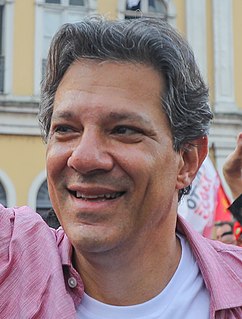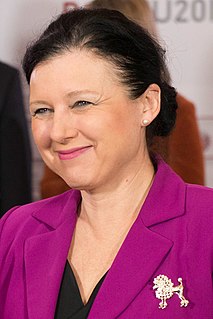A Quote by Alain Dehaze
At best, policy is about protecting the rights of all workers while also driving fair competition and enabling opportunity. It is about making the future work for everyone. At worst, policy tries to resist change and creates uneven playing fields that eventually hurt everyone.
Related Quotes
My general view is that capitalism is an amazing innovation and job-creation machine. But what we've done historically that has been so brilliant is that we've moderated it with appropriate tax policy, with regulation, with workers' rights and infrastructure in our society that make sure that everyone has an opportunity.
The one thing that everyone knows about America is people will say, I know my rights. One of those rights is the right to organize. When workers do get together and organize and drive up their wages, they are much, much better off. I think this is one integral part of food policy. We can't talk about increasing the price of food without figuring out how working Americans are going to pay for that.
It seems clear to me that the Obama Administration has no human rights policy. That is, while in some inchoate sense they would like respect for human rights to grow around the world, as all Americans would, they have no actual policy to achieve that goal - and they subordinate it to all their other policy goals.
In 1977, when I started my first job at the Federal Reserve Board as a staff economist in the Division of International Finance, it was an article of faith in central banking that secrecy about monetary policy decisions was the best policy: Central banks, as a rule, did not discuss these decisions, let alone their future policy intentions.
The problem with much of the debate over this issue is that we confuse two separate matters: immigration policy (how many people we admit) and immigrant policy (how we treat people who are already here). What our nation needs is a pro-immigrant policy of low immigration. A pro-immigrant policy of low immigration can reconcile America's traditional welcome for newcomers with the troubling consequences of today's mass immigration. It would enable us to be faithful and wise stewards of America's interests while also showing immigrants the respect they deserve as future Americans.
The policy that received more attention particularly in the past decade and a half or so has been the US cocaine policy, the differential treatment of crack versus powder cocaine and question is how my research impacted my view on policy. Clearly that policy is not based on the weight of the scientific evidence. That is when the policy was implemented, the concern about crack cocaine was so great that something had to be done and congress acted in the only way they knew how, they passed policy and that's what a responsible society should do.



































